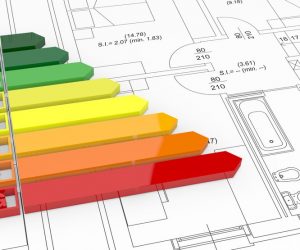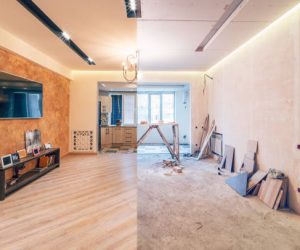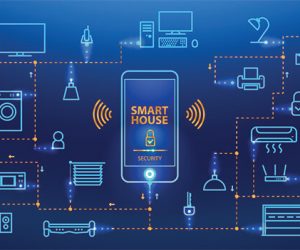Funding Opportunities for Green and Inclusive Community Buildings

The Green and Inclusive Community Buildings (GICB) Program offers substantial funding for new builds and retrofits aimed at enhancing energy efficiency and sustainability. This program supports projects designed to meet stringent environmental standards and promotes high-performance buildings that serve community needs.
Application Timeline
Small and Medium Retrofit Projects: Applications will be accepted from August 1, 2024, until October 16, 2024, at 15:00 (Eastern Time).
Large Retrofits and New Builds: Applications will be accepted from September 4, 2024, until October 16, 2024, at 15:00 (Eastern Time).
Applications must be submitted through the Housing, Infrastructure and Communities’ online application portal.
Each project requires a separate application. If multiple applications are submitted by a single applicant, they must rank their projects by priority.
Intake Streams
Continuous Intake Stream: For small and medium retrofit projects with total eligible costs ranging from $100,000 to $2,999,999. Applications are accepted on a continuous basis within the timeline specified above.
Scheduled Intake Stream: For large retrofit projects and new builds with total eligible costs ranging from $3 million to $25 million. This stream operates on a competitive basis during the application period.
Key Eligibility Criteria
1. Building Standards
Net-Zero-Carbon-Ready
Buildings must be designed to achieve net-zero carbon performance with the addition of renewable energy technologies, following a transition plan. An attestation letter from a qualified professional confirming adherence to the Zero Carbon Building Design Standard V4 is required.
Exemptions
Projects in remote or Northern communities may seek exemptions from net-zero requirements if geographical constraints prevent compliance. Instead, buildings must exceed the energy performance of the 2020 National Energy Code of Canada for Buildings or the relevant provincial or territorial code.
2. Climate Resiliency
Projects must conduct a climate risk assessment, identifying and mitigating medium and high risks. Buildings in flood-prone or wildfire-prone areas must include resiliency measures.
3. Evaluation Criteria
Projects are evaluated on a competitive basis, focusing on:
Community Needs: Higher scores for projects benefiting high-needs communities.
Accessibility: Must meet the highest published accessibility standards.
Zero Carbon Design: Higher scores for projects meeting net-zero carbon without needing a transition plan.
Climate Resiliency: Strong considerations and mitigation measures score higher.
Confidence in Delivery: Strong risk assessments, budgets, and community consultations improve scores.
4. Funding and Costs
Funding Limits
Retrofits:
Up to $9,999,999: 80% (general), 100% (territories and Indigenous communities).
Over $10,000,000: 60% (general), 100% (territories and Indigenous communities).
New Builds:
Up to $9,999,999: 60% (general), 100% (territories and Indigenous communities).
Over $10,000,000: 50% (general), 100% (territories and Indigenous communities).
Maximum Funding: Up to $25 million per project. Larger projects may be considered for additional funding if effectively delivered by March 31, 2029.
Eligible Costs
Costs incurred between April 1, 2021, and March 31, 2029.
Building, renovating, expanding, or improving fixed capital assets.
Fees for professionals, technical personnel, consultants, and contractors.
Environmental assessments and public announcement costs.
Costs for Indigenous consultation/engagement activities.
Ineligible Costs
Costs before April 1, 2021, or after March 31, 2029.
Services normally provided by the recipient or related parties.
Salaries and employment benefits (unless specified).
In-kind contributions, taxes eligible for rebates, and leasing costs.
Purchase of real property, marketing costs, and lobbying expenses.
Reimbursement Process
Eligible costs are reimbursed after signing a contribution agreement and meeting all payment conditions.
5. Additional Requirements
RETScreen® Software
Required for retrofit projects to assess energy consumption and GHG emissions. New builds may also use it.
Non-Competitive Procurement
Contracts under $40,000 (goods) or $100,000 (services) do not need HICC approval. Higher contracts may require approval.
Mixed Use Buildings
At least two-thirds of the building must be for publicly open and accessible services. Adjustments in funding may be made based on eligible use.
Environmental Assessment
Projects must meet environmental assessment requirements under federal or local regulations. Costs associated with environmental assessments are eligible.
Indigenous Consultation
Applicants may need to conduct consultations with Indigenous communities. Costs for these consultations are eligible.
Reporting and Audits
Annual and final reports, including progress and financial details, are required. Projects above $10 million must report on Community Employment Benefits (CEB).
Endorsement
Projects must be authorized by a resolution from the relevant Council, Band, or Board of Directors.
Disposal of Assets
If a funded asset is disposed of within six years, the recipient may need to repay the federal contribution.
Privacy and Confidentiality
Information provided may be used for program review and evaluation. Federal privacy laws apply, and applicants consent to the use and disclosure of their information.





